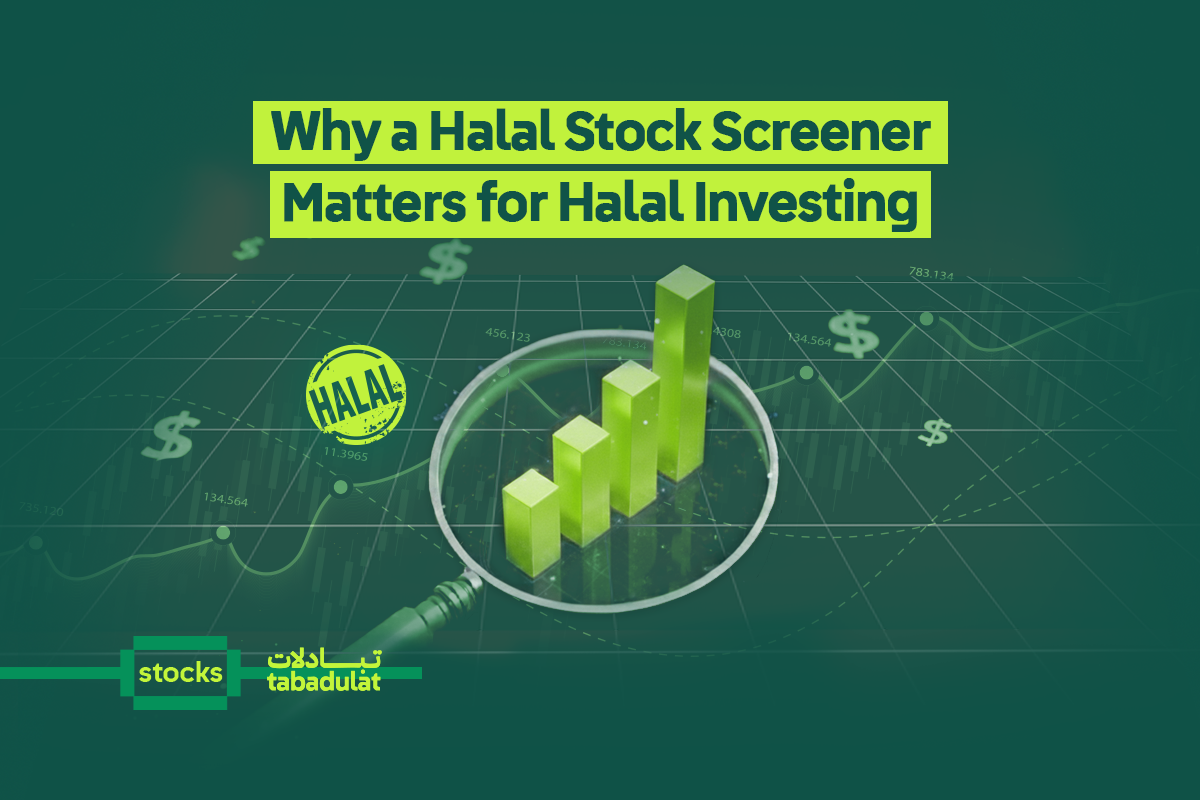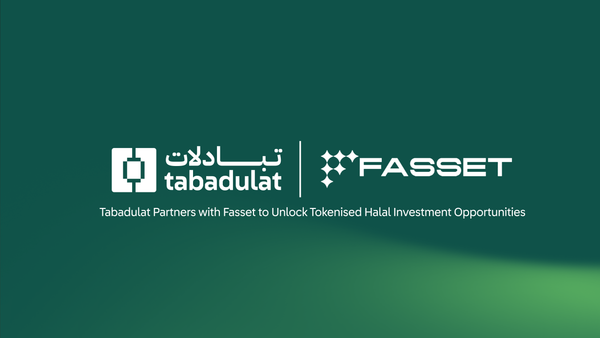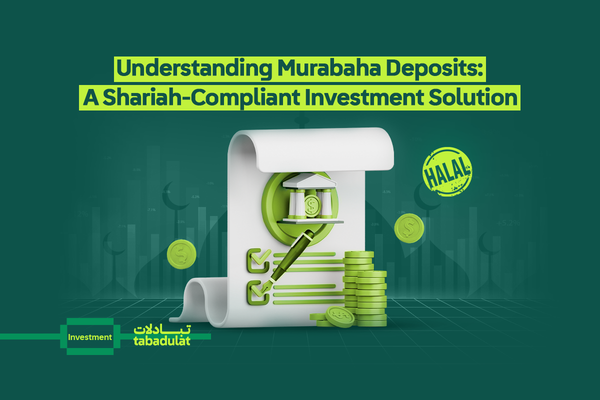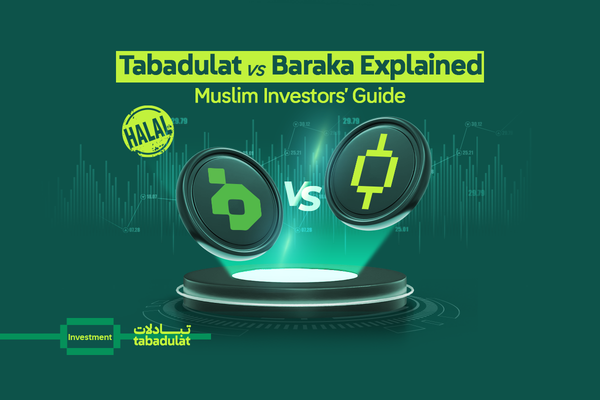Why a Halal Stock Screener Matters for Halal Investing
Discover top halal stocks and the best halal ETF options using a halal stock screener. Find Shariah-compliant investments, maximise halal returns, and invest confidently in global markets while following Islamic principles.

If you’re a Muslim looking to invest and grow your wealth in the global stock market, you’ve probably asked yourself the following: ‘How can I find the best halal stocks to invest in?'
If you want to grow your wealth in a Shariah-compliant manner. Especially in regions like the Middle East, a halal stock screener is one of the most essential tools you'll need. It helps you navigate investment options, manage cash flow, and select financial instruments that are both ethical and profitable.
This is important because not all companies and assets are created equally when it comes to Shariah compliance. The global stock market contains companies that are involved in activities that are not compatible with Islamic finance-like gambling and alcohol. Similarly, a large proportion of global firms (including well-known ones) are financed through Riba and hold a large amount of Riba-bearing debt. These companies would not be considered halal stocks, and investing in them would not qualify as halal investments.
In a world of ESG and ethical investing, only a halal stock screener can tell you whether your assets align with Islamic finance. Without halal stock screening, it’s difficult to assess which stocks are Shariah-compliant or not.
Similarly, companies are not static, so that means what might be halal today, might not be the case tomorrow, one week, one month or one year from now.What are the key indicators or signs to look out for? Let’s break it down further.
What are the key indicators or signs to look out for? Let’s break it down further.
What is Halal Investing?
Halal investing is about putting your money into companies and assets—such as tangible assets, Shariah compliant investments, and select financial products—that are involved in activities permissible under Shariah, the Islamic moral and legal framework. This approach excludes investments tied to debt obligations, interest rates, or non-compliant financial instruments, and instead focuses on ethical investing and profits generated through permissible means. Contrastingly, haram investments refer to companies that are involved in products and activities that go against Shariah principles. This prohibition also extends to companies that are part of the supply chain in a haram product or activity. An example of this would be a company involved in alcohol production or a butcher who sells pork.
Want to dive deeper into the principles of halal investing and how it fits within Islamic finance? Check out our full guide: What is Halal Investing? A Guide to Halal Stocks, Halal ETFs & Islamic Finance
What Makes a Stock Halal?
To figure out whether a stock is halal or haram, it is necessary to screen a company’s business activities and financial ratios, taking into account factors like interest rate exposure, debt obligations, and whether the company invests funds in a Shariah-compliant manner.
The first stage looks at what a company’s primary business activities are. Companies directly involved in the following sectors are deemed haram:
- Alcohol production and sales
- Pork and non-halal meat products
- Gambling, betting, and casinos
- Adult entertainment
- Entertainment promoting immorality
- Weapons manufacturing
- Tobacco and non-medical drugs
- Trading of gold and silver as cash on deferred basis (Riba An-Nisa)
What happens when a company (say a large multinational conglomerate) appears halal but has some haram exposure?
Let’s take the example of a grocery store that sells halal food, but also sells non-halal food as part of its business. Does that mean it's still halal? It's a good question, and not always clear-cut.
This is where the screening process then involves looking at financial ratios of the underlying company. This helps determine the extent and intention of a company's business practices.
Halal ETF & Halal Stock Screening
Once business activities have been screened, it is then necessary to look into the financials and accounting ratios. This involves looking into a company’s balance sheet, to ensure that its operations and income streams are aligned with Shariah guidelines. If a company earns a significant portion of its revenue from activities deemed haram, despite its core business being halal, then investing in the stock or businesses would be haram.
In another scenario, let’s say a car dealership is involved in Riba financing. If a significant portion of its income comes from Riba financing then this would be impermissible from a Shariah perspective. There's also a common misconception.
Tech companies are often seen as always halal and are listed in Islamic indices. This is not always the case. Many large tech companies hold large amounts of Riba-bearing assets or debt or promote a mix of halal content with haram elements.
Similarly, they could partner with industries that don’t align with Islamic values. There are different methodologies and each screening process generally aligns with small variations on the time period and valuation methodology. The most widely used screening methodology is from Accounting and Auditing Organization for Islamic Financial Institutions (AAOIFI), a non-governmental organisation viewed as the benchmark in Islamic finance guidelines.
Under AAOIFI’s methodology, a company’s total Riba-bearing debt should not exceed 30% of total market capitalisation (its total value). Similarly, cash and Riba-bearing securities should not exceed 30% of total market capitalisation (its total value). In addition, non-operating Riba bearing income should not exceed 5% of total income.
| AAOIFI Methodology | Shariah Criteria |
| Total Riba-bearing Debt | < 30% Total Market Capitalisation |
| Cash and Riba-bearing Securities | < 30% Total Market Capitalisation |
| Non-operating Riba Bearing Income | < 5% Total Income |
If a company meets the business activity screening and financial ratios, it is considered halal to invest in.
Looking to diversify your portfolio?
Many Muslim investors ask: should I choose a halal ETF or a halal mutual fund? Each offers access to a variety of asset classes — but not all funds meet AAOIFI screening standards. Tabadulat will break this down in detail and help you compare the options side-by-side.
Read: Are ETFs and Mutual Funds Halal? What Every Muslim Investor Should Know
Ok, what about ETFs, funds and fixed income instruments?
The same halal and haram understanding applies to funds and fixed-income instruments:
- ETFs and Funds: Investors should check whether the fund itself is Shariah-compliant — meaning that all the underlying assets are halal. There are now several halal ETFs and Islamic funds available.
- Sukuk (Islamic fixed income): These are halal fixed-income instruments which are widely viewed as alternatives to conventional bonds, sometimes referred to as Islamic bonds. They are structured around asset ownership and risk participation and not a Ribawi return.
- REITs (Real Estate Investment Trusts): These can be halal if the income is from halal rent property, and the debt ratios are within Shariah limits.
Ever wondered if real estate investments can be Shariah-compliant?
Halal REITs provide access to real estate-backed income, but only when tenant profiles, cash holdings, and debt levels align with Islamic finance. Tabadulat will highlight which REITs meet these standards and how they’re screened.
Learn: Are REITs Halal? A Muslim Investor’s Guide
Purifying income
Whilst a company may pass both business and financial screenings, investors are encouraged to purify their returns and donate their impure income to charity. This process is called purification or Tazkiyah.
As Muslims, we are custodians of our wealth and conscious of our spending. Indeed, we should all strive to earn and grow our monetary base, but we need to do so in a way that is halal, fair, and aligned with our faith.
Wondering if gold investing is halal in today’s market?
Halal gold ETFs are one of the few ways to access the gold market without engaging in impermissible contracts or interest-based returns. Tabadulat will show you how to screen for physical backing, real-time pricing, and Shariah-compliant execution.
Is Gold Investing Halal? How to Invest the Shariah-Compliant Way
How does Tabadulat ensure Shariah Compliance?
At Tabadulat, Shariah compliance is at the core. We’re not just another brokerage that offers halal labelled investments, we are the halal platform for stocks, ensuring your investment journey is 100% halal.
We don't charge any hidden fees and charge a small and transparent fee per transaction. We will use cutting-edge real-time technology to assess the entire universe of 40,000 stocks and ETFs globally on a daily basis. Our methodology is required to be approved by prominent Islamic finance scholars who are well versed in this matter.
We believe Muslims shouldn’t have to pay extra to know if their portfolio is halal or not. That’s why we produce a comprehensive Shariah breakdown of their portfolio and prospective investments to every user at no extra cost. What happens when your portfolio becomes non-compliant?
We’ll notify you immediately to take action. This means you can focus on investing with peace of mind and without compromise.
We follow AAOIFI standards, which means every company we will list, every feature we will launch, and every policy we will implement is centred around Islamic values.
We will also have an independent Shariah Supervisory Board made up of the world's most respected scholars who will oversee our activities multiple times a year and issue a Fatwa on the Shariah compliance of our platform.
Confused by different Halal screening methods?
AAOIFI remains the most trusted benchmark for identifying Shariah-compliant stocks, assessing business activity, interest income, and debt ratios. Tabadulat will use this framework to screen over 40,000 global listings, so you don’t have to guess.
Understand: AAOIFI Standards Explained – What Makes a Stock Halal
We've also created a built-in Zakat calculator to purify your income and meet your Zakat obligations - all at the click of a button and at no extra cost! This means your profits are not only financially halal but also spiritually purified.
At Tabadulat, we’re here to support you every step of your journey — so you can invest 100% halal and with 0% compromise. Ready to take control of your Halal investments?
Sign up for Early Access of Tabadulat.
FAQs
What is a Halal mutual fund?
A halal mutual fund pools money into investments screened to meet Islamic finance principles. It avoids companies with interest income, unethical business activity, or high debt, using AAOIFI-compliant screening methods.
Is gold ETF investing Halal in Islam?
Yes, if the gold ETF is backed by physical gold, allows immediate settlement, and avoids speculative or interest-based structures. A halal gold ETF must comply with Shariah rules on ownership and trade.
What is a Halal REIT?
A Halal REIT is a real estate investment trust that earns income from Shariah-permissible rent sources. It must limit debt, interest income, and avoid leasing to businesses involved in haram activities.
How does a Halal stock screener work?
A Halal Stock Screener checks whether a stock meets Shariah standards based on its core business activity, interest income, cash holdings, and debt levels. Companies must pass all criteria to be considered halal.
What are Islamic bonds?
Sukuk are sometimes referred to as Islamic bonds structured around real assets, not debt. They offer profit-sharing returns without interest and are approved by scholars to ensure they meet AAOIFI standards.
Can Muslim investors buy and sell stocks on the secondary market?
Yes. As long as the stocks are Shariah-compliant. Halal stock screening is essential before buying and selling shares, especially in global stock markets, to ensure all investments and financial products meet Islamic guidelines.
Are conventional banks halal to invest in?
No, conventional banks typically engage in interest-based lending and hold riba-bearing assets. These business activities violate Islamic finance principles and fail AAOIFI screening.
Is the United States stock market halal for Muslims?
Parts of the U.S. stock market are halal but only if individual stocks pass AAOIFI screening for business activity, interest income, debt obligations, and financial system compliance.





